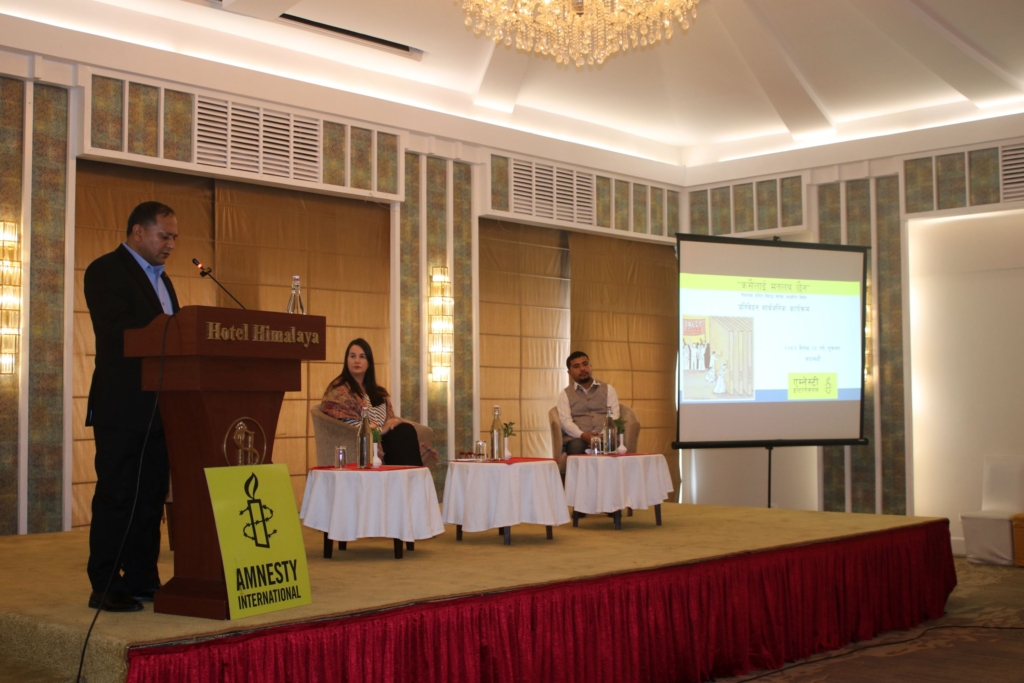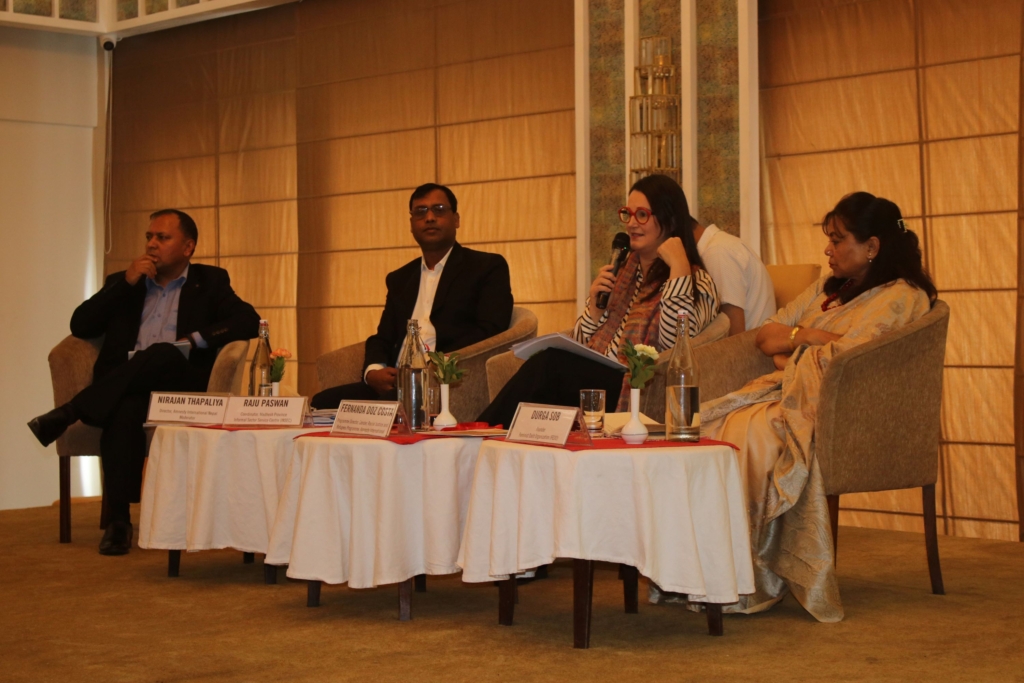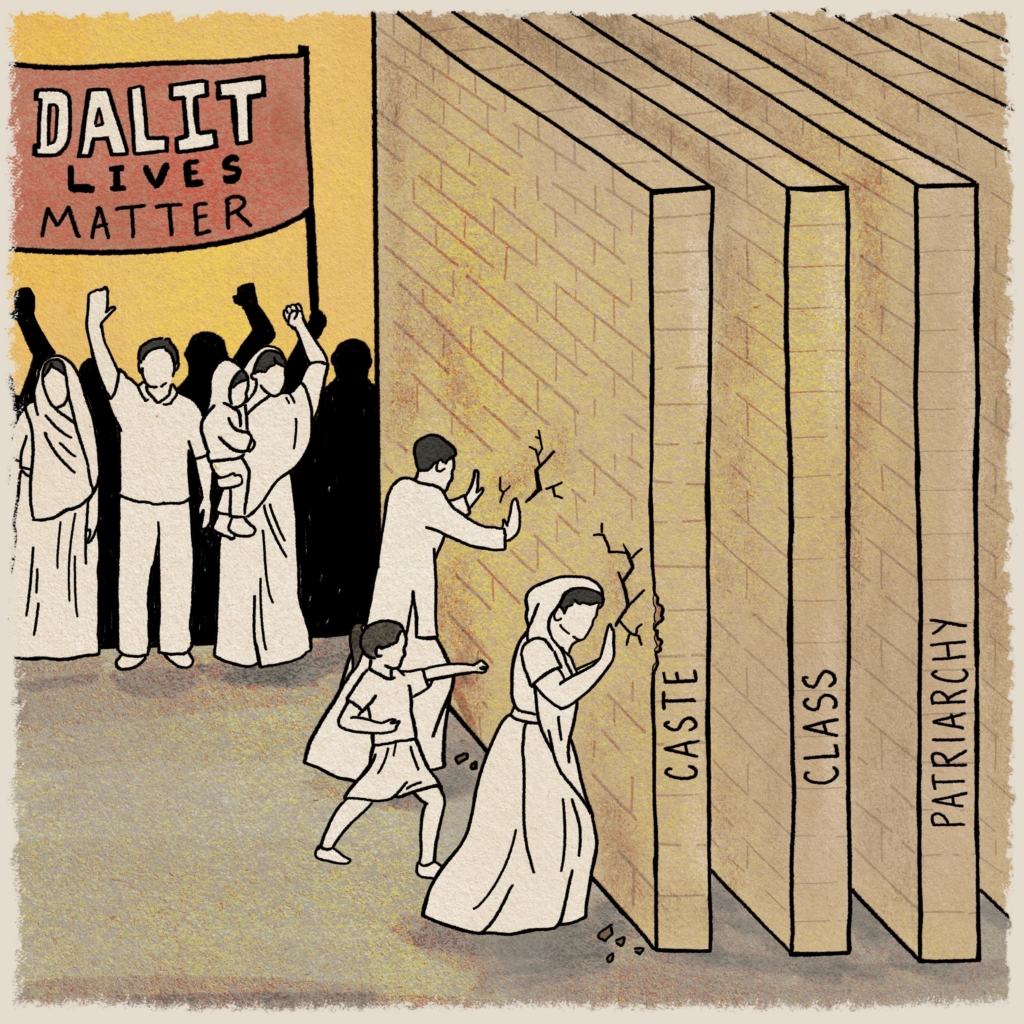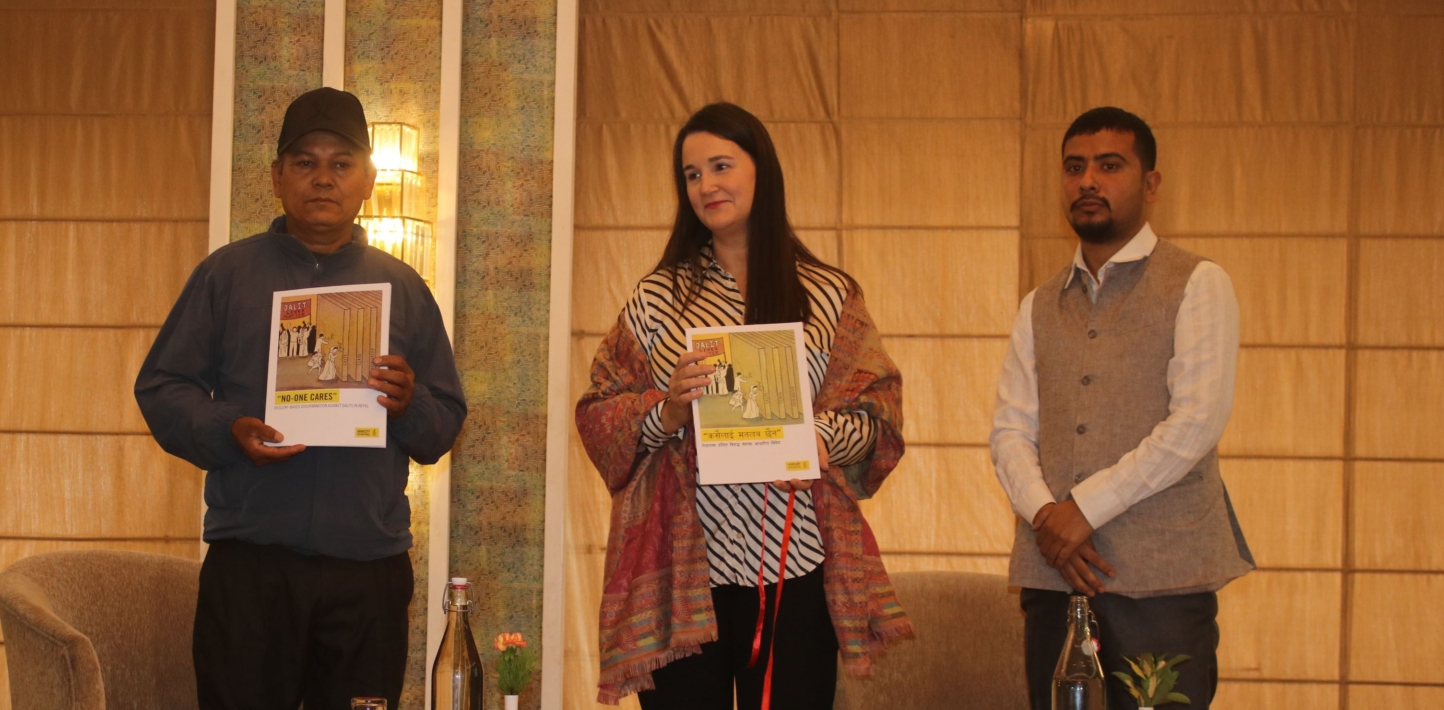Amnesty International has published a new report on descent-based discrimination against Dalits in Nepal amid a program in Kathmandu on 10 May.
The report titled “No One Cares”: Descent-Based Discrimination against Dalits in Nepal documents the experience of systemic caste-based discrimination in Nepal and the challenges Dalit people face in accessing justice, as the Nepali authorities’ existing legal and protective measures prove insufficient and fail to secure their human rights.
The report was launched by Ajit Dhakal Mijar’s father Hari Bhakta Dhakal Mijar, Amnesty International’s Gender, Racial Justice and Refugees Programme’s Director Fernanda Doz Costa and Amnesty International Nepal’s Chairperson Bipin Budhathoki.

“Caste-based discrimination is still prevalent in Nepal and in other parts of South Asia, although Nepal has a good Constitution, a good Caste-Based Discrimination and Untouchability (CBCU) Act. This is because there is a culture of impunity and oppression that allows for people to discriminate based on their caste,” said Fernanda Doz Costa, Gender, Racial Justice and Refugees Programme Director at Amnesty International, at the launch.
Sharing the findings of the report briefly with those attending the launch program, Monica Vincent, lead researcher of the report, said, “Untouchability is an everyday affair in Nepal and Dalit women and girls, in particular, face the brunt of this discrimination. Normalizing such discrimination is further reinforcing a culture of immunity.”
Untouchability is an everyday affair in Nepal and Dalit women and girls, in particular, face the brunt of this discrimination. Normalizing such discrimination is further reinforcing a culture of immunity.
Monica Vincent, lead researcher of the report
The report summarises how the State of Nepal has fallen short in protecting Dalits and causing distrust in the police and justice system. It documents the experience of Dalits, especially Dalit women, with systemic caste-based discrimination in Nepal, including the practice of untouchability, and the challenges they face in accessing justice. The report is based on one-to-one interviews with Dalit women survivors of caste-based violence and with members of three families of young Dalit victims, namely Angira Pasi, Ajit Dhakal Mizar and Nabaraj BK, who were killed due to caste-based violence related to their inter-caste relationships.
Expressing his respect to Ajit Dhakal Mijar’s family, Amnesty International Nepal’s Director Nirajan Thapaliya, said, “I would like to express my deep respect and sympathy on behalf of Amnesty International to all the families and members of victims like him across Nepal. The courage, patience and perseverance shown by them to get justice has inspired us all and they are the real “heroes” of society.”
The findings of the report conclude that discrimination against Dalits is still systemic and widespread and has concrete impacts on the lives and human rights of Dalits, despite the constitutional and legal reforms, as well as the creation of policies and institutions. The state needs to adopt appropriate legislative, administrative, budgetary, judicial and other actions towards the full realization of all human rights for Dalits, especially Dalit women and girls.
The public launch of the report was followed by a panel discussion that delve on the issue of access to justice for the Dalit community from the local, national and global perspective. As panelists, Fernanda Doz Costa was joined by Durga Sob, Founder of Feminist Dalit Organization (FEDO), and Raju Paswan, who is currently associated with Informal Sector Service Centre (INSEC), both of whom have spent decades in strengthening the Dalit movement in Nepal. The discussion was moderated by AI Nepal Director Nirajan Thapaliya.

“There is a concentrated Dalit population in the Madhes, and it is here that a majority of cases of violence has been documented by us. From the total number of human rights violations that occur in the country, 21-27 % takes place in Dalit communities. But these cases seldom get reported to the police, which shows how access to justice is denied in the first stage for people of the Dalit community, because of various barriers like language and class,” said Raju Paswan, of Informal Sector Service Centre (INSEC), providing some local insight on the everyday realities of Dalit people when they are faced with discrimination that is often violent.
Speaking on cultural injustice and discrimination faced by women, particularly Dalit women who already survive on the margins of society, Durga Sob, founder of Feminist Dalit Organization (FEDO), said, “Oftentimes we miss out on talking about the intersection between gender and caste discrimination, but the issue of the Dalit woman is a fight for human dignity, justice and equality.”
“In this day and age, you’d expect things like “untouchability” would not exist but still incidents like Ajit Mijar and Nabaraj BK still take place, which shows how much the pattern of discrimination against people because of their caste is still prevalent,” she added.
To provide a more global perspective on the issue of discrimination, Fernanda Doz Costa said, “The root of descent-based discrimination is very similar to other forms of racial discrimination across the world. This systemic oppression is a result of unequal power relations in society. How we change that power dynamics is key to addressing intersectional violence and discrimination. If we don’t work together to create an environment where we don’t contest this system of oppression and discrimination, we all will lose a little bit of humanity.”
If we don’t work together to create an environment where we don’t contest this system of oppression and discrimination, we all will lose a little bit of humanity.
Fernanda Doz Costa, Amnesty International’s Gender, Racial Justice and Refugees Programme's Director
The event ended with remarks by AI Nepal Chairperson Bipin Budhathoki. The public launch was attended by over a hundred participants who included, among others, civil society members, government officials, journalists and members of the Amnesty movement in Nepal.



